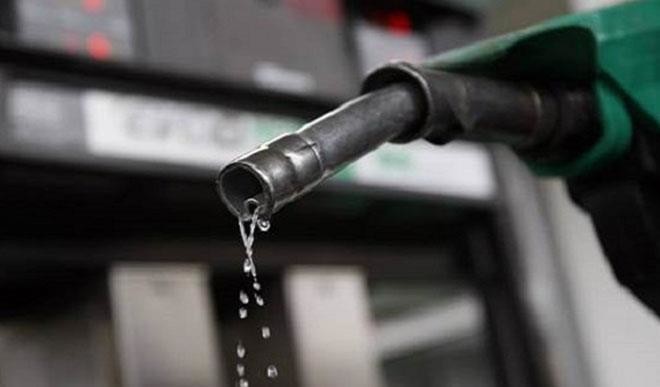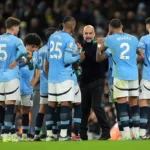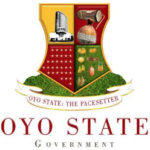
The excruciatingly severe petrol shortage being experienced in Nigeria is also bringing to the surface several usage peculiarities in Nigerian media English. I highlighted some of these peculiarities in a January 29, 2012 article titled “The Grammar and Vocabulary of Fuel Subsidy Removal.” Today’s article borrows some ideas from this article.
1. “Premium Motor Spirit (PMS)”: Every Nigerian newspaper refers to petrol as “premium motor spirit.” In fact, “petrol” is typically represented as the alias of “premium motor spirit.” In other words, Nigerian newspapers mislead their readers into thinking that everyone in the English-speaking world recognizes “premium motor spirit” as the real name for “petrol.”Take, for instance, this recent lead from Premium Times, arguably Nigeria’s best-written newspaper: “Premium Motor Spirit, otherwise known as petrol, is selling at N500 per litre in the black market in Kaduna State as government began enforcement of ban on sale of petroleum products in jerry cans.”
Well, only Nigerian newspapers, and the people who are inspired by them, call petrol “premium motor spirt.” It’s an entirely meaningless phrase to native English speakers in America, Britain, Canada, Australia, and New Zealand. It also makes no sense to English speakers in India, Pakistan, Hong Kong, Singapore, and other Commonwealth countries where English is spoken as a second language.
In 2012, I asked several of my American friends, colleagues, and students what meaning the phrase “premium motor spirit” evoked in them. They all said they had never encountered the phrase and had no clue what it meant.
I searched the 520-million-word Corpus of Contemporary American English (COCA) to see if any American English speaker has ever used the term. I got no matching record. I also searched the 400-million-word Corpus of Historical American English (COHA) to find out if any American ever used the expression between 1810 and 2009. Again, no luck.
I thought, perhaps, the phrase would be familiar to British English speakers, so I searched the British National Corpus to see if there is any record of its use in British English. No luck, either.
Finally, I searched the 1.9-billion-wordCorpus of Global Web-Based English, which indexes English usage in 20 different English-speaking countries. I had some luck this time around. I got 53 matches. But of the 53 matches for “premium motor spirit” that turned up in the database, 49 came from Nigerian English users, 3 from Ghanaian English users, and 1 from a Kenyan newspaper. When I followed the link to the Ghanaian sites that used “premium motor spirit,” I found that the writers were Nigerians who were based in Ghana.
The fact that Kenya is the only other country where “premium motor spirit” was used, even if only once, as an alternative name for “petrol” alerted me to the fact that the word probably has British English roots.
My hunch was right. Although the term enjoys no currency in contemporary British English (as evidenced from its complete absence from the British National Corpus), it actually started life in Britain some 200 years ago.
Carless, Capel & Leonard (now renamed Petrochem Carless Ltd), one of Britain’s first oil companies, was the first to use the term “petrol” in English in 1870 to refer to refined petroleum products, which weren’t used to power cars at the time. By the 1930s when petrol became the fuel used in internal combustion engines, Carless, Capel & Leonard applied to trademark “petrol” so that the company’s competitors (who frequently used the term “motor spirit” to refer to their product) won’t be able to call their product “petrol.” But the application was denied because the use of “petrol” to refer to refined petroleum products, derived from the French petrole (ultimately from Medieval Latin petroleum), had become widespread by the 1930s in Britain.
With the denial of Carless, Capel & Leonard’s application to trademark “petrol,” other British companies that had referred to their product as “motor spirit” freely adopted “petrol” as the name of choice for their product, and “motor spirit” fell into disuse.
It’s puzzlingthat Nigerian journalists-and academics- are still wedded to a word that died in Britain the 1930s.Well, Nigerian journalists, it would seem, fueled this British archaism back to life, at least in Nigeria, by adding “premium” to it!
2. “Fuel” as synonym for “petrol.” When Nigerian journalists don’t call petrol “premium motor spirit,” they call it “fuel.” In both American and British English, fuel is not necessarily synonymous with petrol. Among its many meanings, fuel is the umbrella term for all substances that produce energy such as coal, petrol (which Americans call gasoline or gas for short), kerosene, diesel, petrol, and liquefied petroleum gas. So if kerosene, diesel, liquefied gas, etc. are not in short supply, we can’t legitimately say there is “fuel shortage” or, as Nigerians like to say, “fuel scarcity.” We can only say there is “petrol shortage.”
But I have come to accept “fuel” as Nigerian English’s synonymous term for petrol or gasoline. When I write for a Nigerian audience I too habitually-and intentionally- interchange the two terms. Interestingly, in their coverage of petrol shortages in Nigeria, even the American and British news media appear to have accepted the Nigerian usage of “fuel,” at least in their headlines. This is perhaps because they have assumed that the shortages aren’t limited to petrol.
What happened to Nigerian petrol-inspired linguistic creativity?
In 2012, I wrote about the linguistic creativity that the removal of petrol subsidy inspired among Nigerians. I haven’t seen any parallels in the current situation. Read below what I wrote about “subsidy” in 2012:
“Subsidy.” Perhaps the biggest linguistic gain of the petrol price hike embroilment of the last few weeks is the promotion of the term “subsidy” to the front burner of the linguistic consciousness of Nigerians of all social classes. Before now “subsidy” was a passive terminology that was used only by the highly educated stratum of the Nigerian society. Now almost every Nigerian knows what it means.
A clear marker of the integration of this otherwise “big,” formal word into the everyday speech of Nigerians is its continuously creative vernacularization and humorous contortions. For example, a protester in Kano inscribed the following words on the back of his T-shirt: “Subsidy is my soul.” This simple yet pithy catchphrase captures the depth of the helplessness and angst of the Nigerian masses in the face of government’s overt economic hostilities against them.
Similarly, because the angry protests that accompanied government’s action led to many deaths in such cities as Ilorin, Lagos, and Kano, Nigerians coined the term “subsidie” to capture the slaughterous character of the moment. Interestingly, when the word “subsidy” first entered the vocabulary of the English language from about 1100 to 1450 by way of Norman French ( i.e., the language of the French men who conquered England in 1066 in the Battle of Hastings and colonized it for over 300 years), it was spelled as “subsidie,” according to the Oxford Dictionary of English. The word is derived from the Latin “subsidium,” which literally means “assistance.”
Music of lamentation and anger over the misery that the petrol price increase has visited on ordinary Nigerians is now called “subsidy blues.” YouTube is suffused with scores of “subsidy blues” from upstart Lagos musicians.
“Subsidy” has even made inroads into the lexis and style of Nigeria’s native languages. There was, for instance, a popular social media joke during the protests that said a Yoruba couple had a son during the petrol price hike crisis and decided to name him “Subsideen” to mark the circumstances of his birth. This is obviously a play on such names as Muyideen, Sharafadeen, Shamsudeen, Tajudeen, etc., which Yoruba Muslims have a particular fondness for. The female version of Subsideen is “Subsidat,” also a play on such popular female Muslim names as Rashidat, Muyibat, Habibat, etc.
There is another joke about an Igbo man whose wife gave birth to a son during the “subsidy crisis” and who chose to name the son “Chibusubsidim,” which stands for “God is my subsidy.” Other Engligbo ( i.e., English with Igbo inflections) “subsidized names” (as one Nigerian blogger creatively called it) are Chukwubusubsidim (a male name, which also means “God is my subsidy”); Nkechisubsidilanyi ( a female name that translates as “one that God has subsidized for us”); Chinwesubsidi (a female name that translates as “God owns all subsidies”); Subsidibuifeoma (a female name that translates as “subsidy is good”); Chukwuemekasubsidi ( a male name that translates as “Thank you Lord for the subsidy”); Chinasubsidisikasi ( a unisex name that stands for “God is the ultimate subsidizer”); Chukwukasubsidi ( a unisex name that means “God is mightier than subsidy”); Nkesubsidinye (Engligbo for “born as a result of subsidy”); and Ikesubsidi (a male name that means “the power of subsidy”).
All these names are creatively humorous lexical and semantic contortions of such popular Igbo names as Chibuzo, Chukwuemeka, Ifeoma, Nkechi, Chinwezu, etc.
The Ibibio version of the “subsidy” jokes said a child born in Akwa Ibom State during the petrol subsidy removal crisis was named “Subsi-obong.” Another was named Subsi-abasi. Obong means chief or king in Ibibio. Abassi means God.
It was also said that during the mass protests the commonest form of greeting in the Yoruba states of Lagos, Oyo, Osun, Ekiti, and Ondo was “ekusubsidi” in mimicry of such formulaic Yoruba greetings as “ekuise” (for someone who is working), “ekufaji” (for people in a conversation), etc.

 Join Daily Trust WhatsApp Community For Quick Access To News and Happenings Around You.
Join Daily Trust WhatsApp Community For Quick Access To News and Happenings Around You.


